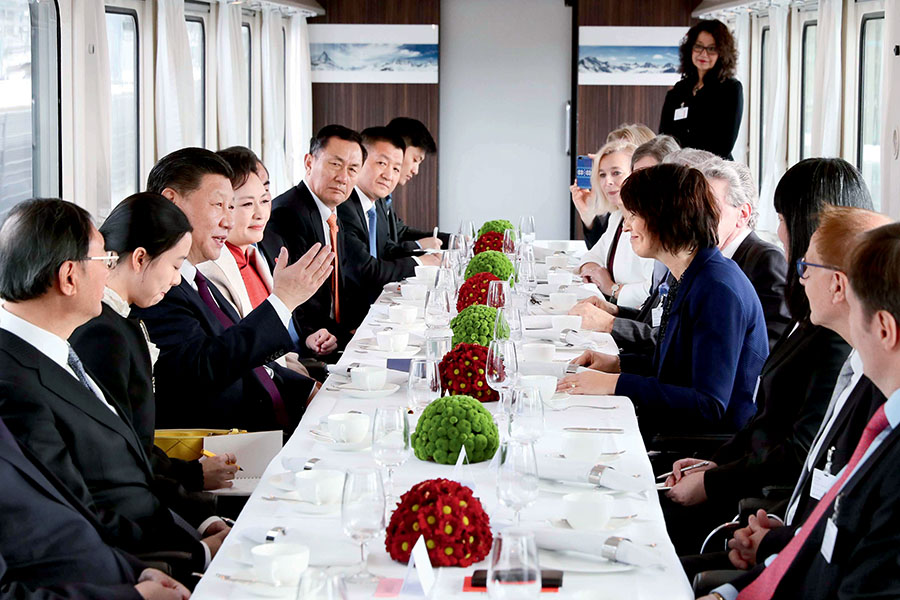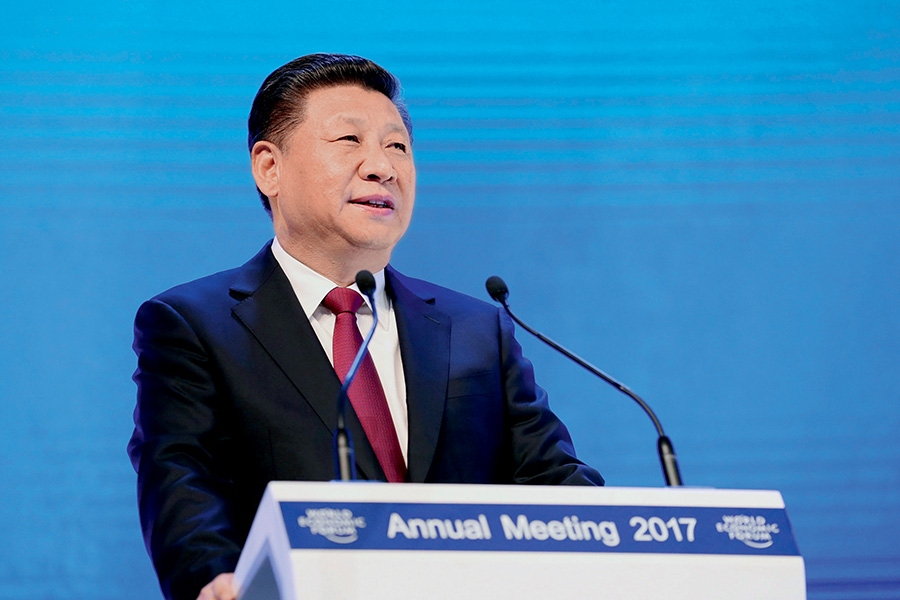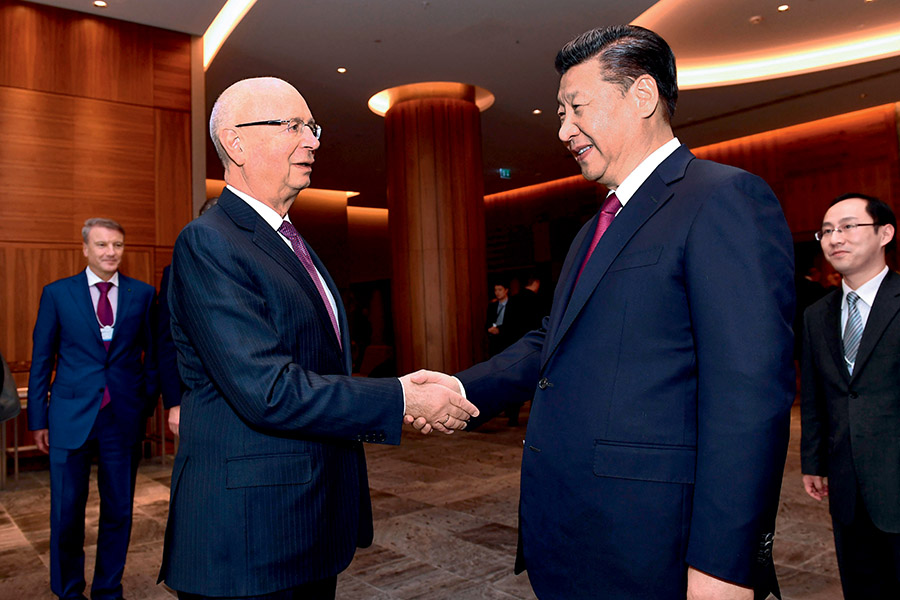Making the Case for Globalization

Chinese President Xi Jinping arrived in Zurich on January 15 to pay a state visit to Switzerland and attend the 2017 annual meeting of the World Economic Forum (WEF) in Davos. It was the first state visit to the Alpine country by a Chinese president in the 21st Century. Meanwhile, Xi also became the first Chinese head of state to attend the WEF annual meeting in Davos. During his first overseas trip in 2017, which lasted until January 18, Xi also traveled to Geneva and Lausanne to visit the United Nations Office at Geneva and the headquarters of the World Health Organization and the International Olympic Committee.


“I hope that, through my visit, we can deepen the traditional friendship between our two peoples, expand our practical cooperation in various areas, enrich the meaning of our innovative strategic partnership, push bilateral ties to a new high, and jointly make positive contributions to promoting world economic recovery,” Xi said in a speech delivered at the airport in Zurich.
China and Switzerland have enjoyed long-term exchanges and cooperation. In 1950, Switzerland became one of the first Western countries to establish diplomatic relations with the newly-founded People’s Republic of China. At the start of this century, Switzerland was among the first European countries to recognize China as a full market economy. In recent years, Switzerland became the first country in continental Europe to conclude and implement a free trade agreement with China.



Xi also attended the WEF annual meeting, which came as economic globalization faces headwinds of rising populism and trade protectionism. During a keynote speech at its opening ceremony on January 17, Xi shared the views of the world’s second largest economy on charting the course for globalization, to make it more inclusive and beneficial to all, and on revitalizing global economic growth.